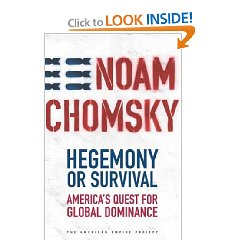Some will say this book aids the enemy, pointing out with shocking clarity the extreme vulnerabilities of our transportation, communications, and other core systems. I happen to agree with the author's core point, as Thomas Jefferson would agree: politicians will continue to ignore these vulnerabilities and lie to the public until the public achieves its own appreciation of the threat.
This is a double-spaced book, an easy read from Tampa to Dulles (2.5 hours), and well-worth any thinking person's attention. For those who disparage this book as “gloom and doom”: go back to your vodka martinis.
THE fundamental point of this book, and one that I happily endorse on the basis of my other 493 reviews of national security non-fiction, is that how we spend the federal tax dollar is completely out of balance. We are spending $500 billion on a “hard power” military that can barely contain terrorism, crime, genocide, revolution, and war between states, while we are letting our states and cities go begging, and refuse to fund just 16,000 Customs inspectors, among other vital initiatives.
This is the single best book I have found that points out that in the era of asymmetric warfare, where non-state actors have both explosive and nuclear-biological-chemical power at their disposal, it is the “soft targets”, the non-military infrastructure targets, which will be most attractive to the “sleeper” agents of Al Qaeda and others. Washington continues to deceive America about its vulnerability, and about Washington's feckless irresponsibility in failing to redirect funds from hard power only relevant to fighting major states, to a combination of homeland defense of soft targets, which is this book's focus, and soft power projection such as Joe Nye recommends in his various books, but especially The Paradox of American Power: Why the World's Only Superpower Can't Go It Alone,
The author's first line is a block-buster: “If September 11, 2001 was a wake-up call, clearly America has fallen back asleep.” He is right. I deal with those responsible for the “Global War on Terror” and most of them are working 9-5, spending half their day gossiping or browsing the Web. [This is still true as of 20 Dec 07, besides which, terrorism is a tactic, you cannot make war on a tactic].
In my view, the author, a former Coast Guard commander and also a National Security Council staff member, is right on target when he says that the Pentagon is guilty of an “escapist” perspective in thinking they can defeat terrorism “over there.” It was this point that caused me to both buy this book in an airport, and to review it concurrently with General Tommy Franks' book American Soldier General Franks is both a superb officer, and a naive escapist, and reading this book drives that point home in a way that would make any intelligent person pleased to have spent time with the author.
There is a “seam” between our homeland security and our overseas capabilities, and there is no one in charge of any coherent program to decide how best to protect BOTH our neighborhoods AND our overseas investments.
This is a nuanced book, one that makes the point that security must become as embedded as safety has been, and the further point that security properly embedded is actually PROFITABLE! He's right. Green lanes for containers that have proper GPS and content authentications will SAVE dollars by saving time. Bio-chemical detection across all herds and food supplies will detect “natural” threats such as we have seen with SARS, monkey pox, bird flu, West Nile virus, etc.
Finally, security and openness can help reduce fraud, especially import/expert tax fraud, where containers loaded with priceless equipment are mis-labeled as low-cost machinery, or vice versa, an advanced form of money laundering that is costing the U.S. taxpayer over $50 billion a year in lost tax revenues.
Of the 1000+ books or so that I have reviewed here at Amazon, this book easily makes it into my top ten list of books relevant to getting national security right in the near term. Beyond five stars.
See also, with reviews:
Open Target: Where America Is Vulnerable to Attack
American Jihad: The Terrorists Living Among Us
Vice: Dick Cheney and the Hijacking of the American Presidency
American Fascists: The Christian Right and the War On America
THE SMART NATION ACT: Public Intelligence in the Public Interest












